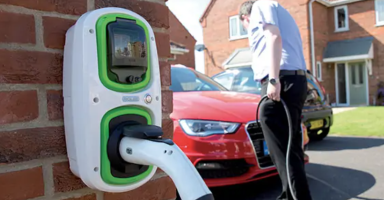Different Types of Electric Vehicles
Electric vehicles come in three main types, categorized by how much they rely on electricity as their energy source:
-
Battery Electric Vehicles (BEVs): These vehicles are powered entirely by electricity and do not require petrol or diesel. They are charged via an electrical outlet and produce zero emissions.
-
Plug-in Hybrid Electric Vehicles (PHEVs): Primarily powered by electricity, PHEVs also have a petrol or diesel engine as a backup. They switch to fuel when the battery is depleted, producing emissions only when using the engine.
-
Hybrid Electric Vehicles (HEVs): HEVs primarily use petrol or diesel, but they also have a small electric battery that is recharged through regenerative braking. Unlike BEVs and PHEVs, they cannot be plugged in to recharge.
Pros
- Eco-friendly: Electric cars are significantly better for the environment as they produce zero emissions during use.
- Low running costs: While the running costs of electric vehicles can vary depending on factors like where you charge (public stations or at home), how often you charge, and the type of charger, they are generally low. For instance, using a Pod Point rapid charger at Lidl costs about £9.30-£10.70 for around 90 miles of range. For more details on costs, check the EDF website.
- Low Benefit in Kind (BiK) tax: Benefit in Kind tax applies when you receive non-salary benefits from your job, such as a company car. The tax for company cars is based on emissions, and while electric vehicles once had a 0% rate, it remains very low—set at 2% until April 2025, with gradual increases of 1% each year until 2028.
- Expansion of charging infrastructure: The UK government has pledged £1.6 billion to expand the national charging network, aiming to have 300,000 public chargers available by 2030.
Cons
- Vehicle excise duty: Electric cars will no longer be exempt from vehicle excise duty (road tax) starting in 2025.
- Charging time: Charging an electric vehicle can be time-consuming, ranging from 30 minutes to over 12 hours, depending on the charger and vehicle.
- Cost of installing a home charging point: Installing a home charging point currently costs around £1,000.
- Demand vs. charging infrastructure: Although charging points are increasing, they are still less common than petrol stations, and demand for electric vehicles is growing faster than the expansion of the charging network.
- Congestion Charge exemption: In London, pure battery vehicles are currently exempt from the £15 daily Congestion Charge. However, starting in December 2025, this exemption will no longer apply.
When deciding whether to purchase an electric vehicle, it's important to carefully consider these advantages and disadvantages to make an informed choice.














